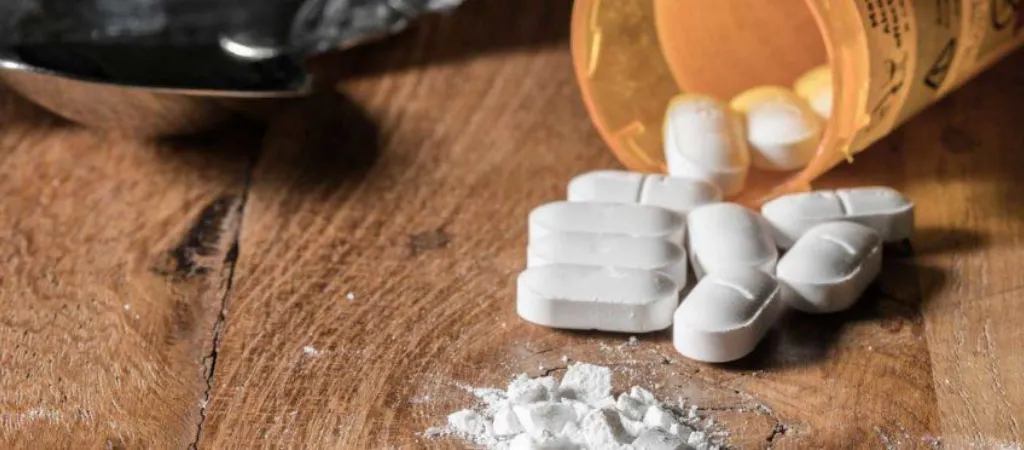Narcotics Drug Addiction Treatment: A Complete Guide to Recovery and Healing
Narcotics addiction is one of the most serious health crises today. It destroys lives, tears families apart, and burdens communities. But here’s the good news—treatment is possible, recovery is real, and healing can happen with the right approach.
Understanding Narcotics Addiction
Narcotics are drugs that dull pain and induce sleep or numbness. While some are prescribed legally for pain management, many are misused, leading to dependency.
Commonly Abused Narcotics
Heroin
Morphine
Oxycodone
Fentanyl
Codeine
Signs and Symptoms of Addiction
Intense cravings
Increased tolerance
Withdrawal symptoms without the drug
Neglecting responsibilities
Financial or legal troubles
Causes and Risk Factors
Genetic Factors of Drugs
If addiction runs in your family, you’re more likely to develop it.
Environmental Influences
Peer pressure, stress, and access to narcotics increase the chances of misuse.
Role of Mental Health
Depression, trauma, or anxiety often push people toward narcotics for temporary relief.
The Impact of Narcotics Addiction
Physical Health Consequences
Addiction can lead to organ damage, weakened immunity, and fatal overdoses.
Mental Health Effects
It worsens depression, anxiety, and cognitive decline.
Social and Financial Toll
Relationships suffer, jobs are lost, and financial instability becomes a daily battle.
Types of Narcotics Drug Addiction Treatment
Detoxification of Body Treatment
The first step—cleansing the body from narcotics under medical care.
Inpatient Rehabilitation Process
A structured environment with 24/7 support for severe addiction.
Outpatient Treatment Programs
Flexible care for those balancing work, school, or family responsibilities.
Medication-Assisted Treatment
Using prescribed medications to control cravings and reduce relapse risk.
Therapies for Narcotics Addiction
Cognitive Behavioral Therapy (CBT)
Helps identify destructive thought patterns.
Contingency Management
Rewards positive behaviors like staying drug-free.
Group and Family Therapy
Rebuilds trust and strengthens relationships.
Prevention and Treatment for Narcotics Addiction
Holistic Treatments
Yoga, meditation, proper diet, and mindfulness improve mental stability and physical recovery.
Relapse Prevention
Recovery doesn’t stop after rehab. Identifying triggers, building coping strategies, and having a prevention plan are crucial.
Life After Treatment
Life after addiction can be fulfilling. Many rebuild careers, reconnect with family, and discover new passions.
Challenges in Narcotics Addiction Treatment
Stigma, cost, and access remain major barriers. But with persistence and support, long-term sobriety is achievable.
Narcotics addiction may feel overwhelming, but treatment offers a path to healing. With medical support, therapy, and strong community networks, recovery is not just possible—it’s within reach. The first step is seeking help today.
Search Query
Nasha Mukti Kendra |
Rehab Near Me |
Rehab Centers Near Me |
Rehabilitation Center Near Me |
Alcohol Rehab Near Me |
Detox Centers Near Me |
Drug Rehab Near Me |
Alcohol Rehab |
Detox Near Me |
Rehabilitation Centre |
Inpatient Rehab Near Me |
Outpatient Rehab Near Me |
Treatment Centers Near Me |
Nasha Mukti |
Alcohol Detox Near Me |
Detox Center |
Drug Treatment Centers Near Me |
Recovery Center |
Rehabilitation Near Me |
Alcohol Treatment Near Me |
Addiction Treatment Centers |
Drug Detox Near Me |
Mental Health Rehab |
Addiction Treatment Near Me |
Mental Health Treatment Centers |
Nasha Mukti |
Vyasan Mukti Kendra Near Me |
Nasha Mukti Centre |
Daru Mukti Kendra |
Mukti Kendra |
Near Nasha Mukti Kendra |
Best Nasha Mukti Kendra Near Me |
Nasha Kendra |
Sankalp Nasha Mukti Kendra |
Nasha Mukti Kendra Near By Me |
Sharab Mukti Kendra |
Daru Mukti Kendra Near Me |
Nasha Mukti Near Me |
Nasha Mukti Kendra Charges |
Vyasan Mukti Hospital |
Vyasan Mukti |
Vyasan Mukti Kendra Near Me |
Vyasanmukti Kendra |
Medical Detox Near Me |
Detox Facilities Near Me |
Nasha Mukti |
Nearby Nasha Mukti Kendra |
Near By Nasha Mukti Kendra |
Vyasan Mukti Kendra Near Me |
Best Nasha Mukti Kendra Near Me |
Nasha Mukti Kendra Near By Me |
Daru Mukti Kendra |
Nasha Mukti Near Me |
Nasha Kendra |
Nasha Mukti Kendra Near By |
Daru Mukti Kendra Near Me |
Mukti Kendra |
Best Nasha Mukti Kendra |
Samarpan Nasha Mukti Kendra |
Nasha Mukti Centre Near Me |
Nasha Sharab Kendra |
Nasha Mukti Kendra Charges |
Nishulk Nasha Mukti Kendra |
Nasha Chadao Kendra |
Sharab Mukti Kendra |
Pgi Nasha Mukti Kendra |
Nasha Mukti Kendra Guna |
Nasha Mukti Kendra In |
Nasha Mukti Kendra No |
Nasha Mukti Kendra Near |
Daru Vyasan Mukti Kendra |
Daru Sodva Vyasan Mukti Kendra |
Alcohal Addiction Treatment Center |
Drug Addiction Treatment Center |
Nasha Mukti Kendra Contact Number |
नशा मुक्ति केंद्र में इलाज |
सरकारी नशा मुक्ति केंद्र कहां है |
नशा मुक्ति केंद्र |
बेस्ट नशा मुक्ति केंद्र इन इंडिया |
निशुल्क नशा मुक्ति केंद्र |
नशा मुक्ति केंद्र फीस |
नशा मुक्ति केंद्र में किस-किस प्रकार के मरीज होते हैं |
नशा मुक्ति केंद्र के नियम |
नशा मुक्ति केंद्र में कितना खर्च आता है? |
नशा मुक्ति केंद्र में मरीज को कितने दिन तक रखा जाता है? |
नशा मुक्ति केंद्र में इलाज कैसे किया जाता है? |
नशा छुड़ाने के लिए कौन सी दवा है? |
नशा बंद की कीमत क्या है? |
सबसे सस्ता नशा कौन सा है? |
नशा मुक्ति केंद्र में कैसे रखा जाता है |
Rehab Near Me |
Alcohol Rehab Near Me |
Detox Centers Near Me |
Rehab Centers Near Me |
Detox Near Me |
Inpatient Rehab Near Me |
Drug Rehab Near Me |
Alcohol Detox Near Me |
Rehabilitation Center Near Me |
Alcohol Rehab |
Rehab Centers |
Alcohol Treatment Centers |
Alcohol Treatment Near Me |
Rehabilitation Centers |
Alcohol Rehab Centers Near Me |
Medical Detox Near Me |
Detox Facilities Near Me |
Drug Treatment Centers Near Me |
Inpatient Alcohol Rehab |
Inpatient Alcohol Rehab Near Me |
Substance Abuse Treatment |
Alcohol Treatment Centers Near Me |
Drug Detox Near Me |
Rehabs |
Dual Diagnosis Treatment Centers |
Drug And Alcohol Rehab Near Me |
Detox Center |
Alcohol Recovery Near Me |
Addiction Treatment Centers |
Alcohol Detox Centers Near Me |
Detox Programs Near Me |
Alcohol Rehab Facilities Near Me |
Drug Rehab Facilities Near Me |
Inpatient Detox Near Me |
Best Rehab Centers Near Me |
Detox Near Me |
Inpatient Rehab Near Me |
Drug Rehab Near Me |
Alcohol Detox Near Me |
Rehabilitation Center Near Me |
Alcohol Rehab |
Rehab Centers |
Treatment Centers Near Me |
Rehabilitation Centers |
Alcohol Rehab Centers Near Me |

